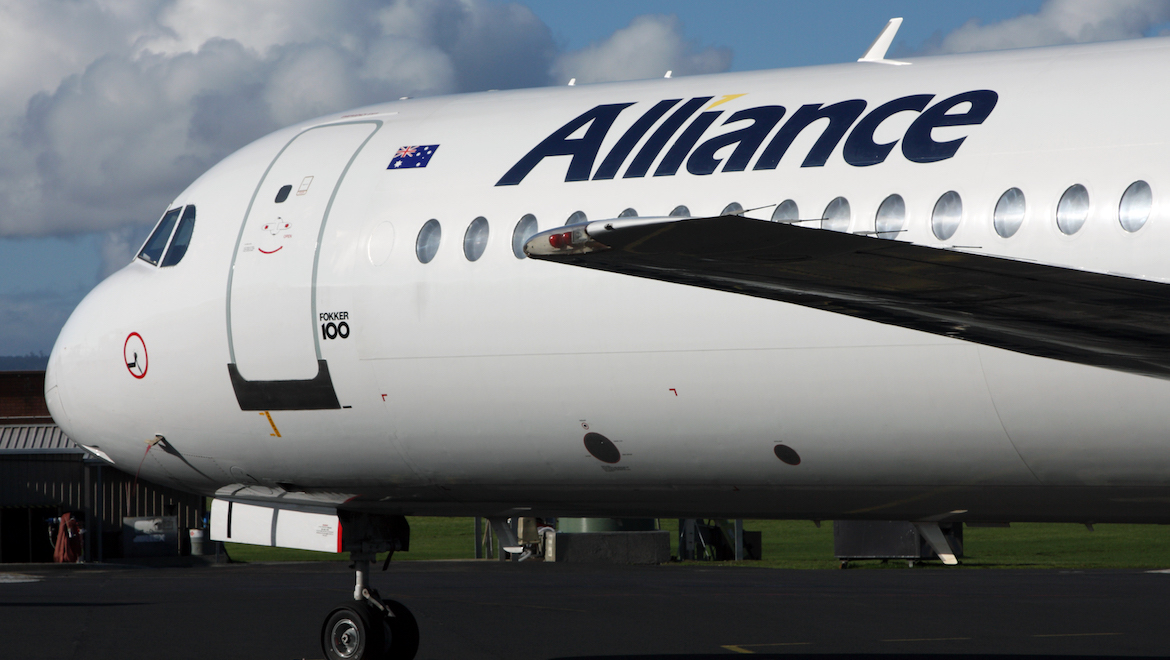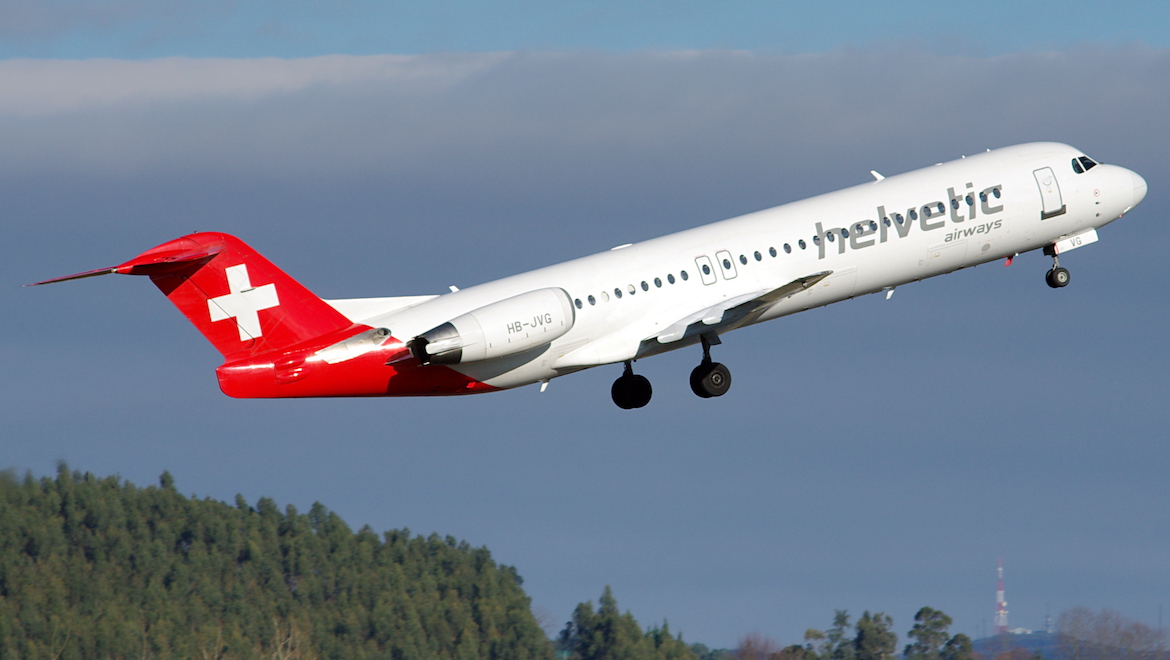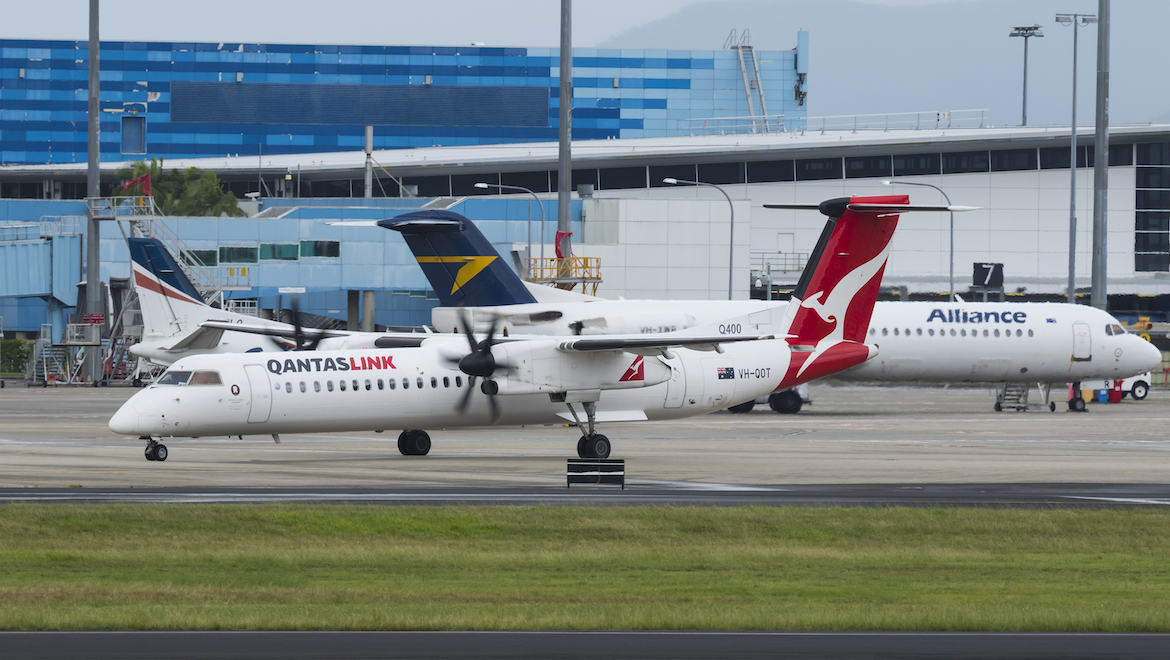
Alliance Aviation Services says it plans to add to its Fokker fleet with the purchase of five more of the out-of-production aircraft from Switzerland-based Helvetic Airways.
The deal for five Fokker 100s and all of Helvetic Airways’ spare engines, parts and tooling was announced on Wednesday.
Alliance Aviation Services, already the world’s largest operator of Fokker aircraft, said the acquisition would extend the economic life of its fleet and “reduce future capital expenditure requirements by securing low cost major components”.
Further, it would also reinforce the company’s position as the largest supplier of engines and spare parts outside of Fokker.
The acquisition built on the purchase of 21 Fokker aircraft from Austrian Airlines in December 2015 and ensured the company had the capacity to take advantage of new opportunities in contract aviation and wet lease services.
“Since the 2015 fleet purchase, we have increased our operational fleet by 11 aircraft to meet the needs of a resurgent resources sector, satisfy the demand for wet-lease services and service the growing opportunities within the tourism sector,” Alliance Aviation Services managing director Scott McMillan said in a regulatory filing to the Australian Securities Exchange (ASX).
“We have also successfully on-sold several of the Austrian fleet as well establishing ongoing engine leases and we continue to sell increasing amounts of spare parts to all the major Fokker operators in the southern hemisphere.”
McMillan said the five Helvetic Airways Fokker 100s were in excellent condition and operating revenue services in Europe.
At December 31 2018, Alliance Aviation Services’ fleet consisted of five Fokker 50s, 10 Fokker 70 and 23 Fokker 100 aircraft.
The regional, charter and fly-in/fly-out (FIFO) operator has said previously it expected to increase the fleet to 44 aircraft by the end of calendar 2019, with an additional two Fokker 100s and four Fokker 70s.
The terms of the deal were not disclosed.

Helvetic Airways recently retired its last Fokker 100 from service. It farewelled the type with a special scenic flight around Switzerland on June 14 2019. The Dutch-built Fokkers were part of Helvetic Airways’ operations for 15 years.
“In all the years in which they have been in service with us, our Fokker 100s have proudly carried the Swiss national colours to all corners of Europe,” said Captain Simon Schatzmann, who was in the flight deck for a special farewell. “So it’s a very emotional moment to say farewell today to this icon of Swiss aviation.”
Helvetic Airways has moved to an all-Embraer fleet of E190-E1 regional jets and planned to add E190-E2s later in 2019.
https://www.instagram.com/p/BysbyfwoJD4/
In recent years, Alliance has made significant strides in broadening its operations from fly-in/fly-out (FIFO) work to boost revenue in areas such as tourism, aircraft sales, wet and dry leasing and spare parts sales.
That has led to a significant increase in flying hours and fleet growth, as the company commenced regular public transport (RPT) flights in regional Queensland which are sold as Virgin Australia codeshare services, signed contracts with United States tour operator Tauck and Japanese travel company JTB.
Alliance has also strengthened its position in the FIFO market through a partnership with Virgin Australia that received Australian Competition and Consumer Commission (ACCC) approval in May 2017.
In late June, Alliance Aviation Services said it expected profit before tax for 2018/19 to be “in excess of $32.5 million”.
The result would be a 25 per cent increase on the prior year and the best in the company’s 17-year history.
Alliance Aviation Services chief executive Lee Schofield said the anticipated bumper profit reflected the company’s successful diversification strategy.
“We now have four different flying categories (contract – mining and tourism, charter, wet lease and scheduled airline services) and operate regularly to over 50 destinations,” Schofield said in a regulatory filing to the ASX on June 20.
On February 1, Qantas announced it had bought a 19.9 per cent stake in Alliance Aviation Services and signalled its intention to seek Australian Competition and Consumer Commission (ACCC) approval to increase that shareholding over time to eventually become the majority owner.
The ACCC was reviewing the deal.





